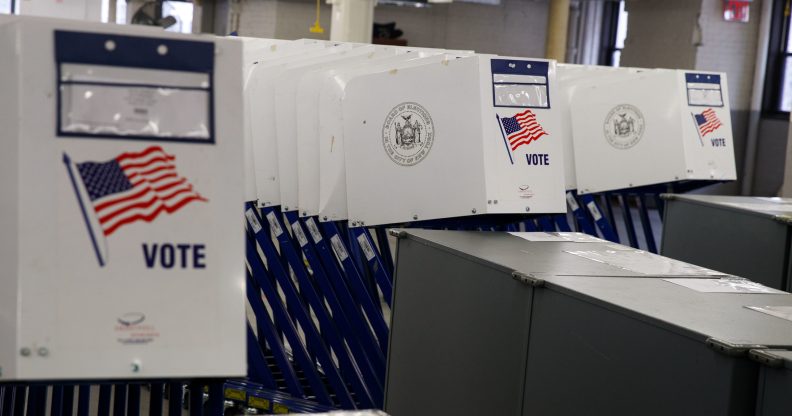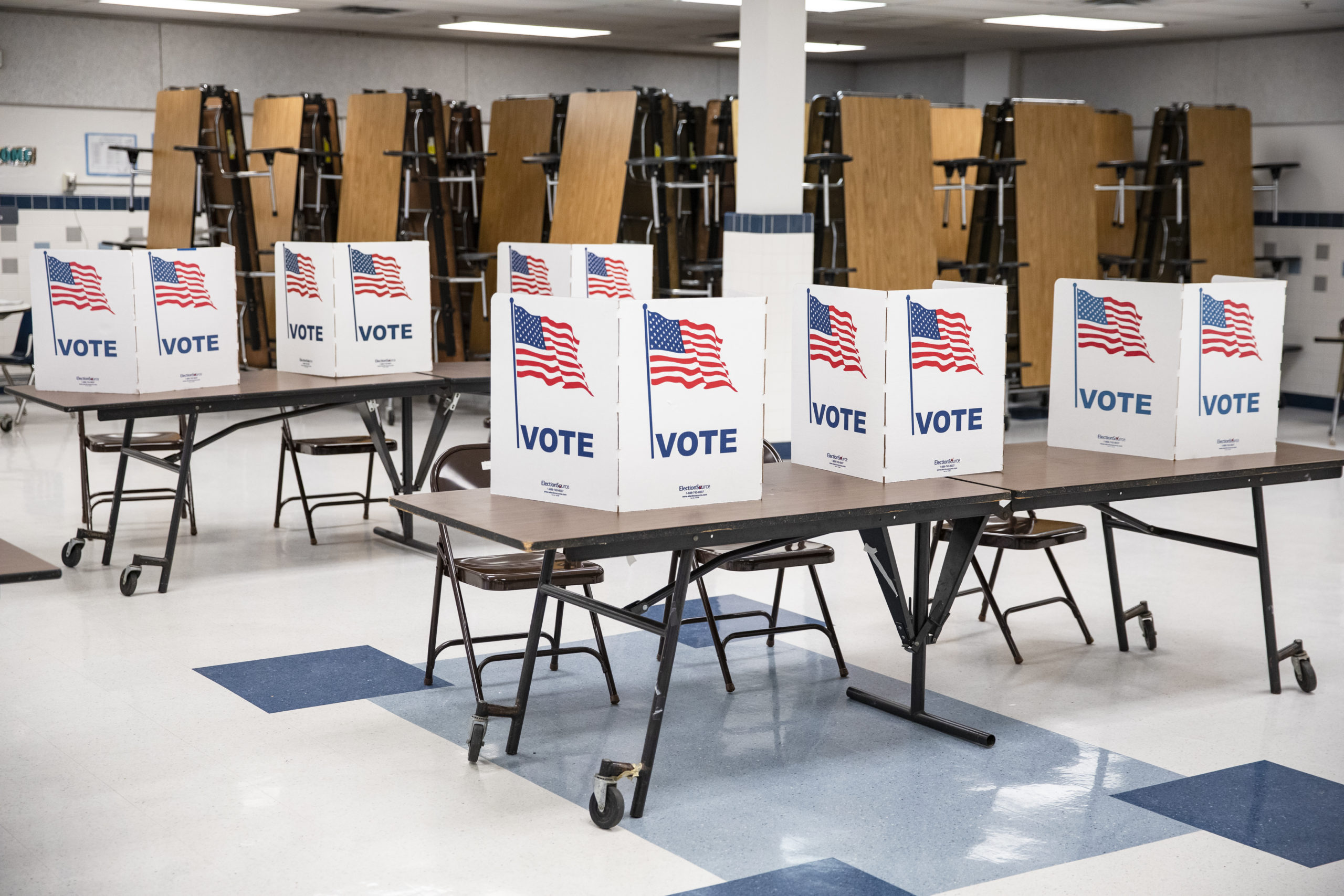Thousands of trans people could be blocked from voting in the presidential election, worrying report reveals

Transgender people are likely to face high barriers to voting in the 2020 election (Drew Angerer/Getty Images)
Transgender people are likely to face high barriers to voting in the 2020 election, a report has warned.
An estimated 378,000 transgender people who are eligible to vote do not have ID documents such as a driver’s license reflecting their name, appearance or gender identity, according to the study from the Williams Institute at the UCLA School of Law.
Some 35 US states have a form of voter ID law, which require voters to provide identification when voting. The strictest forms, in operation in 12 states, require a government-issued photo ID at the polls, with no alternative for voters who do not have one.
As well as disenfranchising minority groups who are less likely to have any form of government-issued photo ID, such laws present a barrier to trans people because they can “be challenged by poll workers or election officials who find that their voter registration information, ID, and appearance do not match”.
While many states would allow a person whose identity is disputed to cast a provisional ballot, the report’s co-author Jody Herman told Voice of America: “If those poll workers decide that those IDs don’t adequately or accurately reflect the person who is standing in front of them, they wouldn’t be able vote.”

Transgender people are likely to face high barriers to voting in the 2020 election (Samuel Corum/Getty Images)
The report notes: “There is no way to predict precisely how election officials and poll workers will treat transgender voters at the polls if their registered name and/or ID do not accurately reflect their gender.
“However, 32 per cent of respondents reported having negative experiences after presenting identification documents that did not match their gender presentation [while accessing services].”
Some 57 per cent of trans people in states with strict photo ID laws do not have an ID that reflects their correct name, according to the report.
Trans people in states without voter ID laws “may still face challenges related to potential mismatches between their gender presentation and their name as listed on their voter registration”, the report warns — with poll workers able to question “a person’s eligibility to vote if they do not believe that the name matches the voter, such as when a name is traditionally masculine or feminine and the voter appears to not match that gender”.
Trans people are worried they could be denied a vote.
Tori Cooper of Human Rights Campaign’s Transgender Justice Initiative told VOA: “We hear about folks in our community who feel so uncomfortable or who are made to feel so uncomfortable that they simply give up when they are challenged on their own identity.
“I know someone who is listed on a voter registration form as female, which does not accurately reflect their current gender identity, which is male. He’s afraid the way he looks and presents himself could actually keep him from being able to vote in person.
“Voting is not about challenging people on their identities. It is giving people an opportunity to express their constitutional right to vote.”

